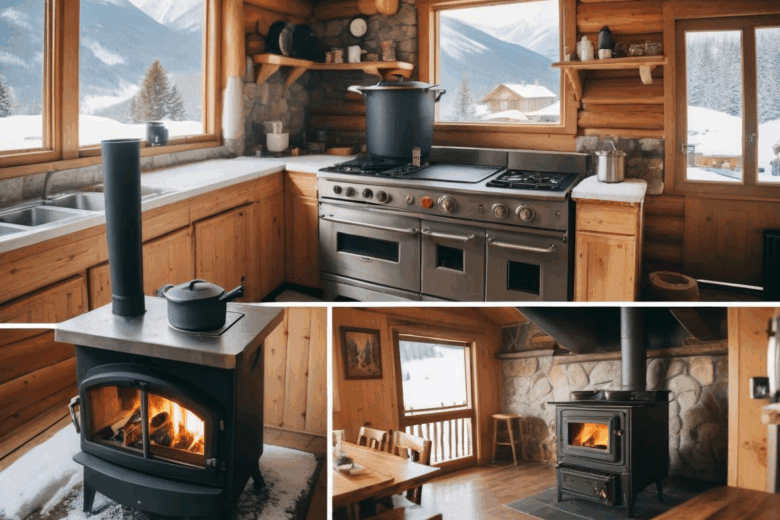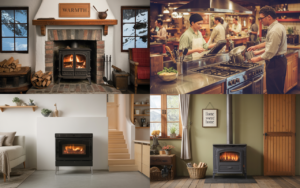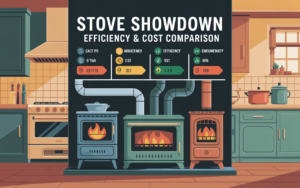Choosing the right stove for your home is a decision that impacts not only your heating efficiency but also your household comfort, aesthetic preferences, and budget. With numerous models and fuel types on the market, from classic wood-burning stoves to modern electric models, the options can be overwhelming. This comprehensive guide breaks down key factors to help you make an informed choice.
Types of Stoves
There are four main types of stoves: wood-burning, gas, electric, and pellet stoves. Each has unique advantages and drawbacks.
- Wood-burning stoves offer a rustic charm and are ideal for those with access to firewood.
- Gas stoves are convenient and efficient, offering instant heat at the push of a button.
- Electric stoves are easy to install and require minimal maintenance.
- Pellet stoves burn compressed wood pellets and are considered an eco-friendly option.
Key Factors to Consider
Before purchasing a stove, consider the following:
- Home Size and Layout: A small stove may be enough for a tiny home, while a large space may require a high-BTU unit or multiple heating zones.
- Fuel Availability: Wood may be abundant in rural areas, while urban homes may rely on gas or electricity.
- Budget: Consider both the upfront cost and ongoing expenses like fuel and maintenance.
- Efficiency: Look for EPA-certified models and high-efficiency ratings.
- Safety Features: Auto shut-off, thermostats, and carbon monoxide detectors are important for modern homes.
Style and Aesthetics
Your stove can also be a centerpiece in your home’s design. Modern models come in various styles from sleek, minimalist electric designs to ornate, cast-iron wood burners. Choose one that complements your décor and lifestyle.
Installation and Maintenance
Some stoves are easier to install than others. Gas and wood-burning stoves typically require professional installation and venting, while electric stoves may only need a dedicated outlet. Also, factor in the maintenance:
- Wood stoves need regular ash removal and chimney cleaning.
- Pellet stoves require hopper refills and fan cleaning.
- Gas and electric units need annual safety checks.
Environmental Impact
If you’re concerned about your carbon footprint, pellet and EPA-certified wood stoves are good choices. Electric stoves can be eco-friendly if powered by renewable energy sources. Gas stoves produce less soot but still rely on fossil fuels.
The best stove for your home depends on your heating needs, budget, and lifestyle. Take time to research and consult professionals if needed. Whether you’re looking for rustic charm or sleek modernity, there’s a perfect stove out there for every home.




